Ophthalmologist Gold Coast
20 years of trusted precision and customised cataract surgery
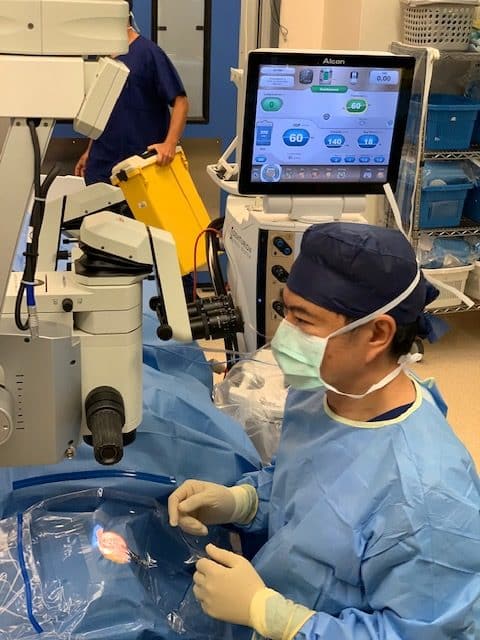
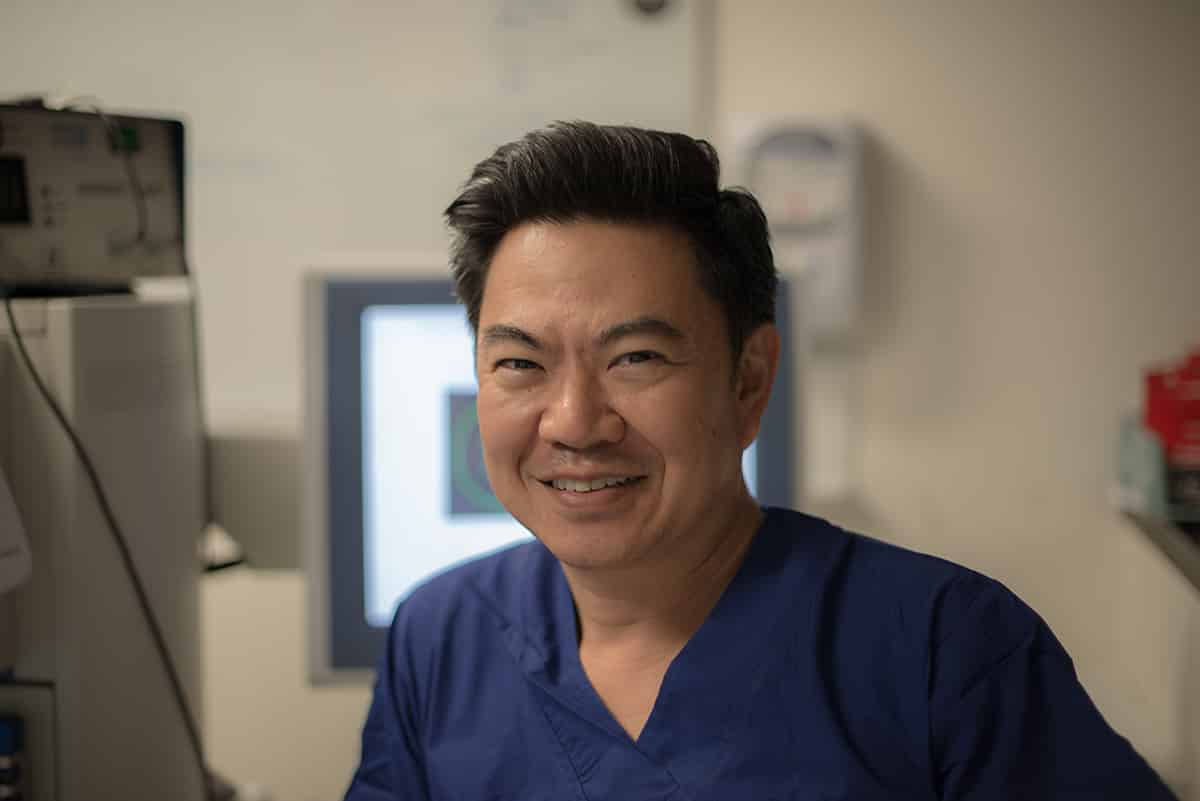
Ophthalmology Clinic
A Comprehensive Eye Service
Pacific Eye Clinic is based in Southport. Our eye surgeon offers a comprehensive range of treatments for eye diseases, disorders and macular degeneration.
Run by ophthalmologist Dr Marc Wei, a principal specialist laser and cataract surgeon, our office uses up-to-date technologies, consistent training and proven procedures to diagnose, treat and provide relief for a whole host of eye issues.
Dr Wei has 20 years of trusted experience in advanced laser cataract surgery and specialises in trifocal lens technology.
- Our ophthalmologist offers services relating to:
- Glaucoma
- Cataracts
- Diabetic Retinopathy
- Macular Degeneration
- Refractive Laser Surgery
- Other Eye Conditions
Eye Specialist Gold Coast
We stay up to date.
Our Gold Coast team regularly undergoes training to stay updated on the latest industry practices in eye surgery. Dr. Wei is also member of the American Academy of Ophthalmology, the European Society of Refractive & Cataract Surgeons, and the Australasian Society of Cataract & Refractive Surgeons.
Services We Offer
Cataracts are the most common cause of visual impairment in people over 60 years of age in Australia. Symptoms include blurred vision, spots in front of the eyes and increased sensitivity to glare. We provide cataract surgery for rapid visual recovery.
Diabetes can cause diabetic retinopathy which, over time, leads to loss of vision, including blurring, blind spots and floaters. Left untreated, diabetic retinopathy can cause complete blindness. If you suspect you are suffering from it, book an examination today with our principal eye surgeon.
We offer ongoing examinations and treatments for glaucoma. This disease cannot be prevented, but if diagnosed and treated early, can be controlled. We aim to minimise the symptoms and halt the progression as much as possible.
Macular degeneration refers to the loss of central vision as a result of age-related changes to the retina or macula. It is the most common cause of legal blindness in Australia. We offer a range of treatments to slow degeneration.
We offer a range of refractive laser surgeries to correct vision issues. Often, the results are almost immediate, with little to no post-operative pain. Talk to the team at Pacific Eye Care about booking in LASIK treatment today.
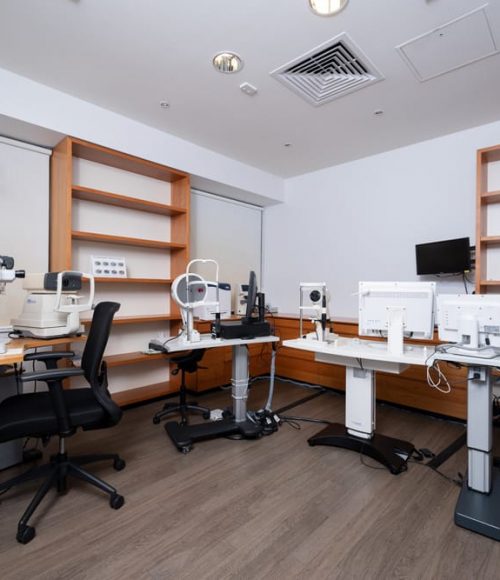
Preventative Treatment
At Pacific Eye Clinic, we believe in providing preventative treatment to maximise the health of your eyes into the future. Prevention is always better than the cure, which is why our team strives to provide simple solutions and educate clients on the best ways to look after their eyes and deal with any issues that may arise.
This includes the use of vitamins and supplements to slow the progression of diseases, as well as booking ongoing examinations for clients who need it.
Staying up to date with annual eye examinations is especially important for people at risk of glaucoma. These comprehensive examinations measure pressure in your eyes, check your optic nerves, and test your visual field for changes in central and side vision.


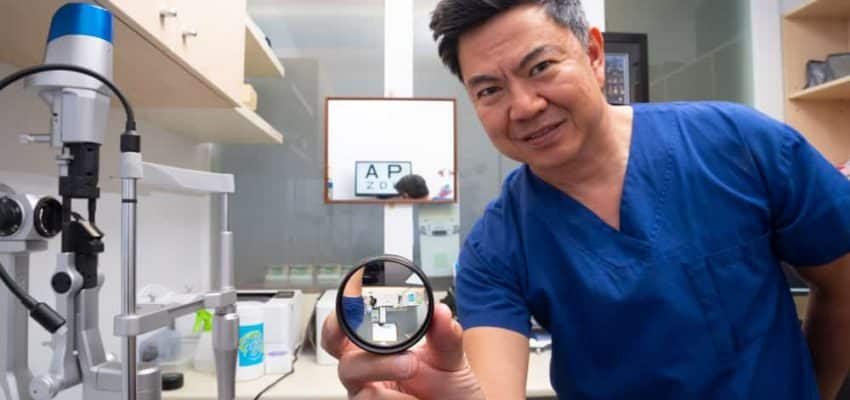
Lasersight
Dr. Wei is a principal eye surgeon for Lasersight, and experienced in a range of refractive procedures, including Advanced PRK, LASIK, ICL and lens surgery. In fact, he’s completed more than 15,000 procedures over the course of his career.
During the last several years, Lasik has become increasingly popular throughout Australia, with many people’s vision restored without the use of corrective lenses! For more information on Lasik, click here.
Why Choose Us?
Choosing the right ophthalmology clinic on the Gold Coast means looking for quality care that meets your needs. At Pacific Eye Clinic, we prioritise your eye health with a patient-first approach, delivering professional care tailored to individual needs. Here’s why you might consider our clinic for your eye health services:
- Our Team: We are dedicated to providing care for various eye conditions.
- Comprehensive Services: We support various needs, including cataract assessment, glaucoma management, and diabetic eye checks.
- Advanced Technology: Equipped with modern tools, we help ensure accurate diagnostics and efficient treatments.
- Accessible Care: We are conveniently located in Southport and easily accessible for patients across the Gold Coast region.
- Focus on Comfort: We provide a welcoming environment where your concerns and questions can be addressed with clarity and care.
For more information about our ophthalmology services on the Gold Coast, contact our team at Pacific Eye Clinic today.
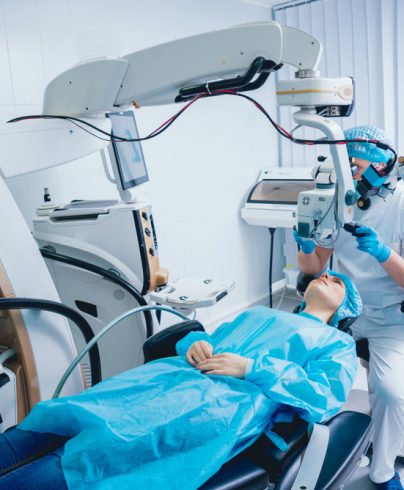
Ophthalmology FAQs
When to see an ophthalmologist?
Signs that you require a visit to the ophthalmologist include changes in colour vision, changes in the field of vision or experiencing double vision, seeing spots or flashes of light, loss of vision in one or both eyes, and more. You should also visit an ophthalmologist if you experience eye pain or physical eye changes. This may include your eyes turning inwards or outwards.
If you’re unsure, contact our eye clinic for advice.
What is the difference between an optometrist and an ophthalmologist?
In short, optometrists examine and treat common eye problems, such as dry eyes and diagnose early eye conditions as well as provide spectacles.
Ophthalmologists are medical doctors with specific training in eye diseases and surgery. They treat eye conditions that are more serious, such as cataracts, glaucoma, laser treatments and injections for macula degeneration. Optometrists perform routine eye exams rather than emergencies. They usually refer you to an ophthalmologist for further treatments or surgery when required.
What is the difference between an orthoptist and an ophthalmologist?
Orthoptists treat eye movement abnormalities and defects of vision, working as part of a healthcare team to support issues related to amblyopia, strabismus, and binocular vision. They primarily focus on identifying early eye problems in children.
Ophthalmologists cover and treat more serious eye problems that are more prevalent in adulthood, such as corneal and retinal conditions.
What procedures do ophthalmologists perform?
Some procedures that we perform include cataract surgery, neoplasm removal, refractive surgery, glaucoma surgery, reconstructive surgery, corneal transplants, macula degeneration injections and more. Contact us for more options.
Can ophthalmology treat retinal detachment?
Yes, ophthalmology provides treatments for retinal detachment, a condition in which the retina separates from its underlying support tissue. If untreated, this can lead to significant vision loss. Treatment typically involves surgical options tailored to the specifics and severity of the detachment. These options include pneumatic retinopexy, scleral buckle or vitrectomy, each chosen based on the individual case to effectively address the issue.
What ophthalmology services are available for cataract treatment?
Cataract treatment typically involves the surgical removal of the cloudy lens, which is then replaced with a clear artificial lens. The most common method for this surgery is phacoemulsification, which employs ultrasonic vibrations to break down and remove the cloudy lens. Additionally, laser-assisted cataract surgery is available, offering increased precision during the procedure and potentially smoother recovery. These techniques can be adapted to fit the specific conditions and needs of the patient, aiming to achieve favourable outcomes.
What is the ophthalmology approach to treating dry eye syndrome?
The approach to treating dry eye syndrome in ophthalmology is thorough, starting with evaluating the condition’s severity. Treatment options vary depending on the severity. More severe cases might require prescription eye drops to enhance tear production. In instances where dryness persists, punctal plugs could be considered to block the tear ducts, helping to retain natural tears in the eyes for a longer duration. Additionally, lifestyle modifications, including decreasing screen time and using humidifiers, may be suggested to help alleviate symptoms and promote eye comfort.
What advancements in ophthalmology should patients know about?
Recent advancements in ophthalmology encompass the adoption of high-precision laser technologies for various eye surgeries, enhancing safety and efficiency. Developments in treating age-related macular degeneration include anti-VEGF injection therapies, which are used to slow the progression of the disease. Furthermore, incorporating artificial intelligence in diagnostic procedures, such as retinal imaging, supports earlier detection and facilitates more personalised treatment strategies. These innovations demonstrate the evolving landscape of ophthalmology, aiming to elevate the standard of care available to patients.


